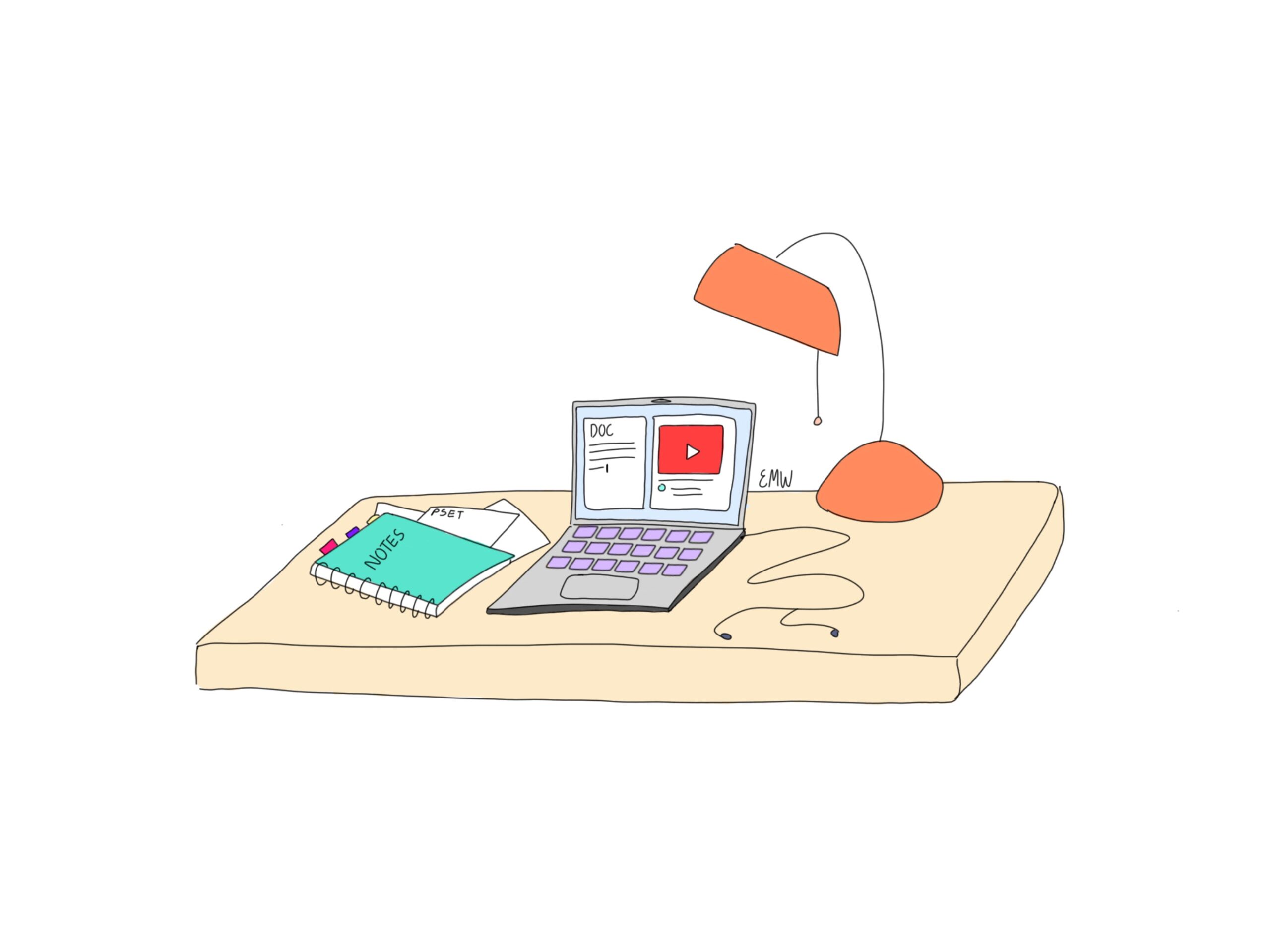“My phone has attachment issues”: Navigating classes in the digital age
With laptops, phones, and notifications constantly competing for attention during class, how are digital distractions affecting students' ability to focus and learn? The News examined the effects of technological distractions on learning.

Elizabeth Watson
Beeping, buzzing, bing.
Cell phones are technological toddlers, constantly alerting us and making noise to grab our attention. But how has the increased dependency and usage of tech at Yale impacted learning and concentration?
Zitlali Garcia-Mondragon ’28 often catches herself picking up her phone when she knows she shouldn’t be.
“My phone has attachment issues,” Garcia-Mondragon said. “It’s very tempting to look at [my] phone when it’s on the table. [Sometimes], I just put it in my backpack.”
Garcia-Mondragon isn’t alone in her struggles; in her Economics 110 class, she notices others falling into the allure of their cellular screens, slipping into mid-lecture scrolling. However, she tries “not to let it distract [her].”
A 2012 study conducted at the University of Colorado, Boulder, surveyed 392 students in large astronomy and geology lectures for nonscience majors. They found that the students who self-reported picking up their cell phones more frequently often had a lower overall grade in that class.
Luckily, research shows that putting digital locks on ourselves may be beneficial for productivity. Professor Evren Sumuer at Kocaeli University in Türkiye published a 2021 study in which two groups, one with unrestricted phone access and one without, were given an identical pretest and a post-test in a college lecture titled “The Introduction to Computer-Assisted Instruction.” Experimenters found that unrestricted access to cell phones resulted in lower mean test scores in the post-test.
“Mobile phone use during classes causes college students to multitask,” Sumuer wrote. This “results in their divided attention and rapid task switching between learning and off-task mobile phone usage.”
Restricting access to cell phones may benefit learning and test-taking outcomes. Sumuer added in the paper that restrictive phone usage policies may be more effective for students’ learning during class time.
Amanda Budejen ’26 is a Pedagogical Partner for Chemistry 163. The program, backed by the Poorvu Center for Learning and Teaching, hires undergraduates to sit through lectures and observe student engagement, providing feedback to Yale College instructors.
On the topic of cell phones, Budejen said, “Students should be honest with themselves about their specific tendencies when getting distracted with technology, and take steps to avoid getting distracted, like blocking certain websites or turning off their wifi if needed.”
Budejen added that professors can do their part by establishing an engaging environment and ensuring they use technology to keep the class engaging and interactive.
While studying, setting up screen time limits or utilizing specific app restrictions are some strategies for increased concentration. Productivity apps like Forest, which lock non-work-centered apps, can motivate students to stay focused.
In extreme cases, like “if students find that their phone is becoming a distraction to getting work done, feeling overwhelmed or staying in the present moment, I’d recommend scheduling with a [Yale College Community Care] wellness specialist to learn helpful strategies to improve your experience with technology,” Ricky Belizaire, a community wellness specialist with the Yale College Community Care, told the News.
Yale’s Mental Health & Counseling Department clinicians are on-call 24/7 and can be reached at (203)432-0290.







